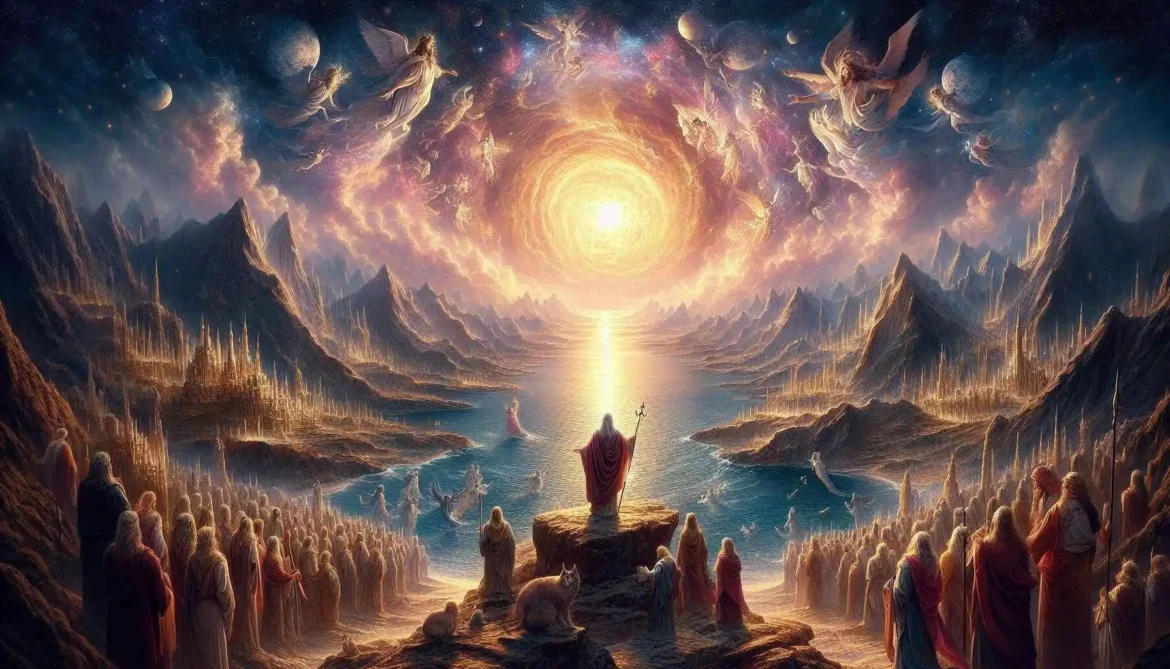
Why Psalm 2 Still Matters: Lessons on Authority, Power, and Faith
We open the book of Psalms, a treasury of human emotion and divine truth, and just after the peaceful contemplation of Psalm 1 on the paths of the righteous and the wicked, we are thrust into a scene of cosmic rebellion. Psalm 2 bursts forth with a question that echoes through history: “Why do the nations rage and the peoples plot in vain?” This psalm, often categorized as a Royal or Messianic Psalm, is a powerful and dramatic declaration of God’s universal sovereignty and the ultimate authority of His Anointed King. As we explore its verses, we discover layers of meaning that speak not only to ancient political realities but also to the deepest spiritual implications for our lives today.
Psalm 2 is structured like a four-act play, each section revealing a different perspective in this grand cosmic drama. Let’s walk through these acts together, observing the characters, their actions, and the immutable will of the Almighty.
Act 1: The Rebellion (Verses 1-3)
The curtain rises on a tumultuous global stage. We see the nations – the Gentiles, the peoples of the earth – in a frenzy, “raging” and “plotting.” Their anger and conspiracy are directed at the ultimate authority: “against the Lord and against his Anointed.” The rulers of the earth, the kings and officials, gather together with a defiant declaration: “Let us burst their bonds apart and cast away their cords from us.”
Here, we witness the inherent human desire for autonomy, a deep-seated resistance to divine rule and the authority God appoints. These earthly powers see God’s sovereignty, and that of His chosen King, not as protection or order, but as restrictive chains. They want liberation from divine standards and governance, preferring to chart their own course. We recognize this impulse within ourselves and the world around us – a constant tension between submission to God and the assertion of independent will. This opening scene vividly portrays the futility of opposing the Creator of the universe. Their plotting is “in vain,” ultimately destined to fail.
Act 2: God’s Response (Verses 4-6)
The scene shifts dramatically from the earthly stage to the heavenly throne room. How does the Almighty respond to this audacious rebellion? Certainly not with panic or concern.
“He who sits in the heavens laughs; the Lord holds them in derision.”
The divine perspective is one of absolute confidence and even humor in the face of futile human defiance. The nations’ raging is like the angry buzzing of insignificant insects to the One who holds the cosmos in His hand. But God’s response is not just amusement; it is followed by righteous wrath.
“Then he will speak to them in his wrath, and terrify them in his fury, saying, ‘As for me, I have set my King on Zion, my holy hill.'”
God’s response escalates from derision to decisive action. His fury is not uncontrolled rage but the settled, terrifying consequence of opposing His perfect will. And what is His terrifying decree? It is the absolute, non-negotiable establishment of His King. Despite the nations’ plans, God’s plan is already enacted: His King is installed on Zion, the seat of God’s authority on earth. This act underscores God’s absolute sovereignty; His plans are not contingent on human approval or opposition.
Act 3: The King’s Declaration (Verses 7-9)
Now, the Anointed King steps forward and speaks, declaring the divine decree that established His authority.
“I will tell of the decree: The Lord said to me, ‘You are my Son; today I have begotten you. Ask of me, and I will make the nations your heritage, and the ends of the earth your possession. You shall break them with a rod of iron and dash them in pieces like a potter’s vessel.'”
This is a pivotal moment. God proclaims this King as “my Son,” a title carrying immense significance, denoting not just a chosen representative but one sharing in the divine nature or authority in a unique way. The phrase “today I have begotten you” has been the subject of much theological discussion, understood by Christians through the lens of Christ’s resurrection and ascension, where His divine Sonship and kingly authority were publicly declared and fully realized (Acts 13:33, Hebrews 1:5, Hebrews 5:5).
The King is granted the ultimate inheritance: the nations and the ends of the earth. This is a universal dominion, contrasting sharply with the limited scope of the nations’ rebellion in Act 1. And what will His rule look like for those who oppose Him? It will be one of irresistible power, breaking them with an “iron rod” and shattering them like clay. This imagery is not of gentle persuasion for the defiant but of absolute, unyielding judgment upon those who refuse to submit.
Act 4: The Warning and Invitation (Verses 10-12)
The psalm concludes with a direct address to the earthly rulers and indeed, to all people. It is a call to wisdom and a final invitation.
“Now therefore, O kings, be wise; be warned, O rulers of the earth. Serve the Lord with fear, and rejoice with trembling. Kiss the Son, lest he be angry, and you perish in the way, for his wrath is quickly kindled. Blessed are all who take refuge in him.”
The warning is clear: abandon the futile rebellion and embrace wisdom. True wisdom is recognizing God’s sovereignty and the King’s authority. The call is to “serve the Lord with fear,” not a trembling terror that paralyzes, but a reverent awe acknowledging His power and holiness. This fear is coupled surprisingly with “rejoice with trembling.” We are to find joy in serving Him, even as we maintain a healthy reverence for His might.
The most striking command is “Kiss the Son.” In ancient Near Eastern culture, kissing the king was an act of homage, submission, and loyalty. It is a call to pledge allegiance, to honor the Son whom God has appointed. The consequence of refusal is severe: the King’s anger and perishing. But the psalm ends not with a threat, but with a glorious promise: “Blessed are all who take refuge in him.” The rebels face wrath; the refuge-takers find blessing.
Here’s a summary of the Psalm’s structure:
| Verses | Scene/Action | Key Theme | Perspective |
| 1-3 | Nations raging, plotting | Human Rebellion | Earthly/Human |
| 4-6 | God laughs, speaks in wrath | Divine Sovereignty | Heavenly/Divine |
| 7-9 | The King declares decree | Messianic Authority | Messianic |
| 10-12 | Warning, Invitation to submit | Call to Wisdom/Faith | Prophetic/Pastoral |
Meaning and Spiritual Implications





